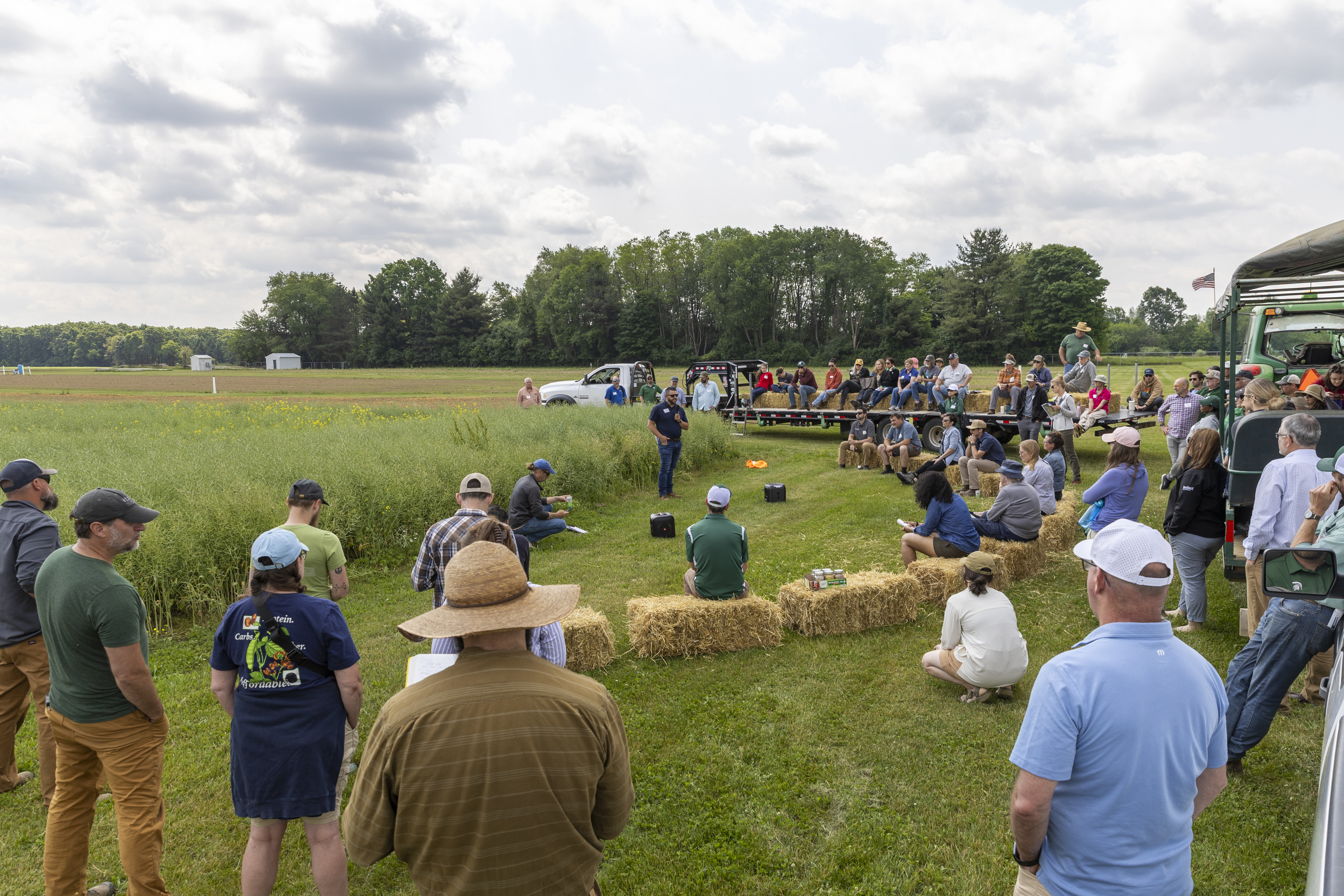“What was the last delicious whole grain that you had the pleasure of enjoying?” asked Julie Doll, CEO of Michigan Agriculture Advancement.
The 90 participants attending the second annual Food Grade Grains Field Day reflected on this question while eating delectable pastries from Field and Fire Bakery, made with local grains from Melody Bee Farms. Doll later probed participants to think about the entire supply chain that made it possible to enjoy these grains – the farmers, service providers, millers, bakers, and the list goes on.
This is what the Food Grade Grains Field Day is all about—learning and networking across the supply chain to understand the vastness of research, knowledge, and passion needed to get from field to mug, spoon, and jug.

The field day took place from 9 a.m. to 1 p.m. Tuesday, June 10, at the W.K. Kellogg Biological Station, home of three federally-funded long-term agricultural research programs that provide the fundamental infrastructure for research on food grade grains. The day featured six crops that are grown in Michigan—barley, rye, wheat, open-pollinated corn, dry beans, and canola.
Keys themes throughout the day included:
- Small grains are a “gateway crop to conservation” that help farmers diversify their operations and have time to plant cover crops, ultimately building better soil health on their farms.
- Participants wanted to know if grains grown in healthier soils may better support animal and human health, as well as impact downstream product flavor and quality. Ongoing research at MSU seeks to address some of these questions.
- Farmers value research and variety trials conducted by KBS and MSU-Extension because the research helps them identify the best crop for their field and purpose, and to predict challenges they may face ahead of time.
- There is significant interest in creating a local grain economy that connects Michigan grain growers with downstream processors (millers, bakers, maltsters, distillers), but there is a need for better connection and support between these groups, especially for smaller-scale operations.
The Food Grade Grains Field Day was co-organized by Michigan Agriculture Advancement, MSU Extension, and the KBS Long-Term Agroecosystem Research program, and supported by the Artisan Grain Collaborative and the Michigan Craft Beverage Council.
Read the full article, which includes key points from each speaker about the six featured crops.
~~~~~~~~~~~~~~~~~~~~~~
Tayler Ulbrich is the associate director for engagement with the KBS Long-Term Agroecosystem Research program, or KBS LTAR.
~~~~~~~~~~~~~~~~~~~~~~

A legacy of conservation; a commitment to sustainability.
3700 E. Gull Lake Drive
Hickory Corners, MI 49060
(269) 671-5117
info@kbs.msu.edu